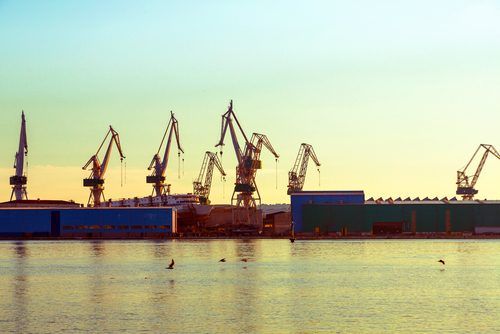June 12, 2015 | Industry Insights
The Devil’s in the Exclusionary Details

The beauty of customizable cargo insurance is in its comprehensive applicability to very specialized shipping needs, but under that beautiful face lies a web of wrinkles that could represent hidden exposures to uninsured losses.
Three issues that should be at the top of your list when placing a cargo insurance policy are the insolvency exclusion, warehouse-to-warehouse/duration and improper packing. Can all of the important details be top of mind for a single risk manager or insurance agent? Probably not. That’s why it’s crucial to include your entire management team in the insurance policy placement process. You need to understand and document all of your transit risks and review your cargo insurance policy for exclusions, warranties and limitation.
Let’s take a look at three common exclusions that are most overlooked and misunderstood.
The insolvency exclusion precludes insurance coverage for the loss, damage or expenses arising from the insolvency or financial default of the owners, managers, charterers or operators of the vessel when the insured is unable to show that—prior to the time of loading the insured cargo onto the vessel—all reasonable, practicable and prudent measures were taken by the insured, its servants and its agents to establish the financial reliability of the party in default.
Carriers who face imminent bankruptcy could abandon cargo on board a vessel or on shore, and that cargo could be damaged as a result. An insurer could deny a claim because of the insolvency exclusion—especially if it was possible to know the carrier was in financial distress prior to the loading of the cargo.
Clauses pertaining to warehouse-to-warehouse or duration coverage limitations typically remove insurance protection after a set amount of time, such as 60 days from the time goods are discharged from the seagoing vessel. If cargo sits at the port or an inland destination longer than that, an extension of insurance coverage is needed, but that must be approved before the initial policy expires. Do you have someone monitoring cargo schedules to prevent a lapse in coverage? Cargo taken out of transit altogether, say for export packing or consolidation, needs its own special clause, so be sure to cover all your bases.
Improper packing is almost universally excluded from cargo insurance policies. Though most reputable logistic service providers can be relied on to properly pack cargo, subcontractors and vendors might not have the same expertise. If anything is coming from such sources, special diligence is in order, which can be a tall order if your supply chain is complex. When a cargo claim is made, the insurance adjuster will likely secure the services of a cargo surveyor to determine the standards used in packing, so the testimony of the packer will be validated or disputed by that expert. It is recommended that subs and vendors be required to have solid liability insurance to cover cargo in their control and damages to cargo due to any improper packing by them. Additionally, shippers should consider including cargo surveyors in their risk mitigation program so at the time of packing, loading and unloading, they can verify the condition of cargo, its stowage and its packing in the course of transport, thereby preventing errors and losses.
Vetting all players in the cargo transit process before they handle your shipment is an important step in your risk management practices. Understanding your policy’s exclusionary details and making sure your insurance agent knows all the information about your cargo and shipping process is also important.
We invite you to learn more about Roanoke Trade, our experienced talent in this highly specialized area, our creative solutions, and the value we will bring to you and your clients. Please contact us at 1-800-ROANOKE (800-762-6653).













